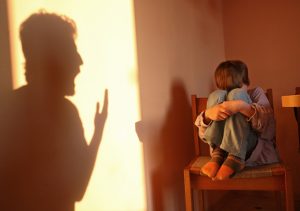The One Thing We All Should Do to Become Better Parents
 Nothing feels more like a fresh start more than becoming a parent. When a child is born, the future is one vast, clean slate riding on a sea of our finest hopes, dreams, and intentions. Yet, pretty much every parent quickly learns that the sea is much rockier than anticipated. This is not just because of the lack of sleep or weightiness of new responsibility, but because of the storms of emotion that arise within us. Nothing stirs up our past, our emotions or our basic sense of being as much as having a child.
Nothing feels more like a fresh start more than becoming a parent. When a child is born, the future is one vast, clean slate riding on a sea of our finest hopes, dreams, and intentions. Yet, pretty much every parent quickly learns that the sea is much rockier than anticipated. This is not just because of the lack of sleep or weightiness of new responsibility, but because of the storms of emotion that arise within us. Nothing stirs up our past, our emotions or our basic sense of being as much as having a child.
Every human being has early experiences with fear, anger, confusion, and hurt that lead them to develop certain adaptations or psychological defenses. These defensive adaptations go on to shape how we relate and react to our own children. That is why the very best thing we can do for our kids, whether they’re already born or arriving in the future, is to make sense of our own story.
Many people think they’re safer just burying their bad memories of painful moments from childhood under the rug, forgetting about them and moving on, but attachment research tells us that that isn’t the way to go. In fact, findings from lead attachment researcher Dr. Mary Main and her colleagues have found that the biggest predictor of how we will be as parents isn’t what actually happened to us as children but, rather, how much we’ve made sense of and felt the full pain of those experiences from our past. In fact, creating a coherent narrative of our childhood matters more than the socioeconomic status, trauma, environment and culture of our family we grew up in.
Dr. Main developed the “Adult Attachment Interview,” which helps determine a person’s ability to tell a coherent narrative about his or her early life. What she found is that having the ability to tell a coherent story predicted the attachment style a person’s own child would have to them with a 70 percent accuracy, even before the child was born. When we’re unable to reflect and make sense of our own childhood, we are more likely to experience an insecure attachment pattern with our kids. That is because unresolved traumas and implicit memories have a way of impacting us on an emotional level, triggering us in moments of stress that remind us of feelings or events in our past.
Many parents think, “My childhood wasn’t perfect, but it was fine. Besides I can do better than my parents did.” However, by failing to actually look at what hurt us, we may unconsciously start acting out patterns and dynamics from our childhood that we weren’t even aware had affected us.When we fail to look at these events and their impact on us, we may act out in ways that don’t even feel like us. For example, our baby crying may trigger us to feel helplessness or even anger that we just don’t understand. We may experience a sense of panic that makes us less likely to react appropriately or be attuned to the baby’s needs.
One mother I know used to insistently try to feed her daughter a bottle whenever she cried, not realizing that the toddler was actually batting the bottle away and clearly communicating that she wanted to be held. Eventually the woman remembered the feelings of hunger she herself had had as a young child when her mother would fall asleep without feeding her. She realized that the way she felt from her own mother’s negligence was being stirred up whenever her daughter was upset. When she made this connection, she felt calmer in handling her daughter and was able to be more present and sensitive to her, offering the affection her baby had been seeking instead of the food she herself had longed for as a child.
The more we’re able to recall and resolve the big and small traumas that shaped us, the better able we are to recognize when we’re triggered and take healthier actions in the moment. We can move toward this goal by creating a coherent narrative of our lives, a process I explain along with Dr. Daniel Siegel in our online course, “Making Sense of Your Life.” This process of making sense of your story helps integrate our brains, making implicit memories explicit, so we can choose how to act rather than blindly reacting to old emotions of which we aren’t always aware. We can be more present for our child rather than being thrown back into our past on an emotional level. We can form healthier attachments and resolve old traumas, big and small.
As painful or uncomfortable as it can seem to reflect on our history, this task helps us to understand where we’re coming from and release emotions that affect us in our present day life. The saying “study the past if you would define the future” is sound advice for any parent. This pursuit frees us from the restraints of our past to become the parent and person we truly want to be. It also frees our children to form more secure attachments, make sense of their own experiences and become more integrated, mindful adults.
Learn more about the online course, “Making Sense of Your Life.”
Tags: adult attachment, attachment, attachment patterns, attachment style, attachment styles, child attachment, child development, parenting, parenting advice, parenting skills, parenting tips, parentsOne Comment
Leave a Reply
You must be logged in to post a comment.










Hi I’m signed up for the webinar today on parenting but not sure how to Acces the link